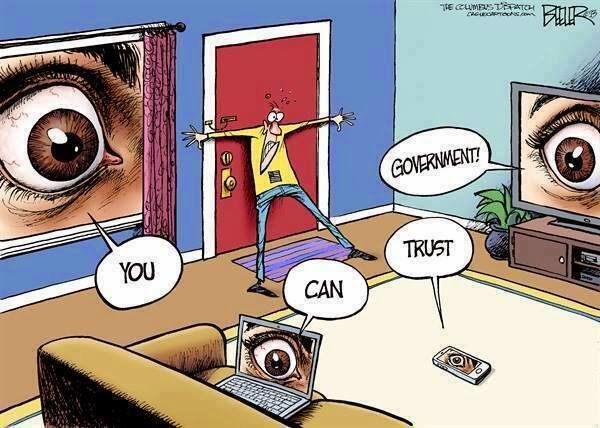
A new analysis of documents leaked by whistleblower Edward Snowden reveals that the NSA is very likely diverting American internet traffic overseas in order to get around restrictions on domestic surveillance. This process of diverting internet data is called traffic shaping. Once data is transmitted outside of the United States the government no longer considers it to be protected by the 4th amendment. By intentionally routing American internet traffic outside of the United States, the NSA can sidestep restrictions imposed on them by the Judicial system as well as Congress on the warrantless collection of domestic surveillance.
In the mid-1970s two congressional committees investigated abuses and illegal activities committed by United States intelligence agencies, including the NSA and the CIA. The United States House of Representatives had the Pike Committee, officially known as the House Permanent Select Committee on Intelligence, while the United States Senate had the more well known and infamous Church Committee, officially known as the Senate Select Committee to Study Governmental Operations with Respect to Intelligence Activities. The Church Committee led to the establishment of the Senate Select Committee on Intelligence. At the time, the existence of the NSA was not publicly acknowledged. The findings of the Pike Committee and the Church Committee led to the passage of the Foreign Intelligence Surveillance Act (FISA) of 1978. FISA was intended to rein in the ability of the NSA, and other intelligence agencies, to spy on the American people. FISA created special intelligence courts that approve requests by intelligence agencies to conduct surveillance.
While FISA was meant to protect the privacy of the communications of Americans, many privacy advocates have called the FISA courts illegal and unconstitutional secret courts with secret rulings and secret interpretations of law. Most requests to conduct surveillance that the FISA court receives are granted. However, even this modicum of judicial and congressional oversight over US intelligence agencies is skirted through the President’s own surveillance program. This presidentially authorized surveillance program was created by Executive Order 12333.
Under Executive Order 12333, US intelligence agencies like the NSA are authorized to collect and share data that is “incidentally obtained” and that “may indicate involvement in activities that may violate federal, state, local or foreign laws.” The order originated under the Reagan administration in late 1981. It created new authorities for US intelligence agencies, and was expanded through three amendments made during President George W. Bush’s two terms in office, in 2003, 2004, and 2008, and further expanded through another order issued by President Barack Obama last year. Under Executive Order 12333, intelligence agencies such as the NSA are authorized to collect virtually all electronic communications from both people who are within the United States, as well as people who are outside of the country, without a warrant, court order, probable cause, or reasonable suspicion.
The document leaked by Edward Snowden dates back to 2007 and gives an example of how traffic shaping works, showing how internet traffic from Yemen can be diverted through undersea fiber optic cables to “friendlier” territories. While it is unconfirmed if the NSA is indeed diverting the internet traffic of Americans, it seems very likely the agency is using traffic shaping. But the NSA refuses to comment on such speculation. A spokesman for the NSA issued a carefully worded statement which does not in fact deny that traffic shaping is being conducted on the internet traffic of Americans. “We do not comment on speculation about foreign intelligence activities; however, as we have said before, the National Security Agency does not undertake any foreign intelligence activity that would circumvent US laws or privacy protections,” the spokesman for the NSA said.
Congress could put restrictions on the President’s warrantless global mass surveillance program, but most lawmakers seem unlikely to support such reforms. Section 702 of FISA is set to expire at the end of this year, which would be a perfect opportunity for lawmakers to create some kind of restrictions on the President’s program and protect the privacy of Americans. However, it seems more likely that very conservative reforms to Section 702 are being considered, as well as some in Congress who wish to make Section 702 permanent. Section 702 authorizes bulk collection of electronic communications, which are conducted through NSA surveillance programs such as PRISM and Upstream.
